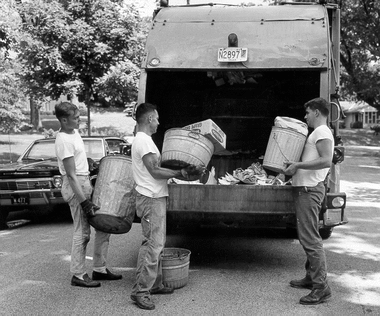 In the seventies, when I was in second or third grade, there was a movie I loved called “Beyond and Back.” “Beyond and Back” was about the near death experiences of several different people. As their stories were told, almost all of them described hovering above their dead bodies and grieving loved ones, rushing through a tunnel of light, feeling immense love and oneness, then having the sense that it “wasn’t yet their time” and returning back to their bodies. I loved this movie, of course, because the people claimed to have direct experience of something that most consider to be an impenetrable mystery- the mystery of death. Death is the one journey all of us will take, or so it seems, and so to find information on what happens when you die can be tremendously reassuring to those who “don’t like surprises” (as both of my children tell me they don’t). As I got older, I had a similar experience with regard to spirituality- I was much more attracted to those who seemed to have direct experience of enlightenment than those who merely quoted scriptures. In a sense, authentic spiritual teachers are like those who have died and come back to tell about it. Only with enlightenment, it’s not about physical death, but a totally different kind of death. In this week’s reading, God tells Moses, “Shelakh l’kha anashim vayaturu et Eretz Canaan-” “Send for yourself people to spy out the land of Canaan…” Canaan is the “Promised Land." It is the aim of the liberation from Egypt (Mitzrayim- the place of constriction- tzarim- narrows) and the ultimate home of b’nei Yisrael- those who see through “straight to God” (Yishar- straight- El- God). In other words, the Land is a metaphor, pointing to the aim of spiritual liberation. What is that aim? It is described as flowing with halav ud’vash- with milk and honey. What is milk? Milk is pure nourishment. What is honey? Honey is sweetness. There’s a sweetness and nourishment that flows from Reality, but to receive it there has to be a relaxing of all contraction (mitzrayim) and an openness to simply Being with this moment as it is. But most of those spies came back with bad reports, telling of insurmountable “giants in the land.” You too might be skeptical about Liberation, and there might be fear. That’s because you know on some level that if you truly open to Reality as it is, there will be pain- Reality is sometimes painful. With resistance, at least you can hold back some of that pain. That’s the advice of the “spies” who reported back about the “giants” in the land. “We are like grasshoppers in their eyes…” You might think- “I’m not a super human. I’m just human. How can I possibly accept everything? How can I surrender? How can I become present?” In that fear, there’s the tendency to turn spiritual awakening into just an idea, into something to talk about, but not something you can really be. When that happens, the spies with the bad reports have won. Like the Israelites who were condemned to wander another forty years in the desert, the intellectualizing of spiritual awakening keeps the searching and wandering going on and on, and puts off the Arriving for another time. But you don’t have to be superhuman; you don’t have to be anything in particular, because openness is not a special thing; it is Nothing. It is just a willingness to allow everything to be as it is. It is told about Rabbi Leib, one of the disciples of the Baal Shem Tov, that when he heard rabbis expound on the Torah, he would remark- “What does all this intellectual expounding amount to? A person should totally be a Torah, so that you can learn from their smallest movements as well as their motionless cleaving to the Oneness. They must become empty and spacious like heaven itself, of which it is said- “Ayn omer v’ayn devarim- There is no speech and there are no words…” This is the spaciousness of Presence- the “heaven” that is born within when resistance dies, but you do not. On this Shabbat Shelakh, the Sabbath of Sending, may we open to the energy of liberation that is being sent our way, constantly, always in this moment. And when we do, may any pain that Reality throws our way be brief, and may we drink deeply from the milk and honey of Being. Good Shabbos!
1 Comment
 During my son’s tenth year, he started getting really into gourmet cooking. He was inspired mostly by the competitive cooking show, “Chopped.” On Chopped, four contestants would cook under pressure, limited by time and strange ingredients. The challenge was to come up with something delicious and original under the constraints they were given. I’ve watched Chopped many times with him. One thing I’ve found interesting is that in the interview clips with the contestants, they would all boast about how great they were and how they would beat everyone. As the show unfolds, three courses are prepared- an appetizer, a main course and a dessert. After each course, the contestants are critiqued and one is “chopped” by the judges, until one winner is left at the end. As each contestant loses, we see some post-losing interview clips. Almost invariably, the contestants express a little sadness for losing. But then they express gratitude for having been given the opportunity to compete, and say they look forward to improving their skills and continuing to serve people with their cooking. It seems to me that the contestants must be coached by the producers on what to say in the interviews, because it just doesn’t make sense- people who boast generally don’t turn around and express gratitude and humility when they lose, and people who are humble generally don’t boast about how great they are. It's as if when they are "chopped," their egos get chopped as well! On the other hand, tremendous self-confidence can paradoxically live side-by-side with tremendous humility and gratitude. In this week’s reading, The Torah says of Moses- “V’ha’ish Moshe anav me’od- “And the man Moses was very humble…” Moses was humble? He was the tireless and sometimes ruthless leader of the Children of Israel, delivering laws from God and leading them in numerous victorious battles with their enemies. How could he have been humble? But humility doesn’t have to mean meekness or weakness. It means not grasping after greatness for yourself. It means understanding that the greatness you are comes from beyond “you.” In fact, there is no separate “you” at all, there is just Reality in all Its different forms. That's why Moses was humble- he was great, but he wasn’t concerned with his own greatness. He was serving the Greatness that called to him. When your attention is on That, rather than your own image or desire to be validated or seen in a positive light, it’s humbling… and empowering at the same time. Which brings us to a second paradox: In order to keep your attention on the greatness of Reality, rather than on your own self-image in relation to others, you have to keep your awareness rooted in your own body. Your fragile, material, temporary, flawed, physical body is actually the gateway to Eternity, when your attention is rooted there. As the parshah opens: “Beha’alotkha et haneirot, el mul p’nei hamenorah ya’iru shivat haneirot- “When you kindle the lamps, toward the face of the menorah shall the seven lamps cast light.” The light is your awareness, the menorah is your body. Keep the “light” of your awareness rooted in your body, and you become present. Become present, and the vastness of Eternity is open to you- not as some heaven or afterlife to be earned and enjoyed later, but as the living experience of this moment- free and open to all. And yet, this gift is not completely free. To receive it, you have to “chop” the idea that it must be earned, by you or anyone else. Otherwise you will judge yourself and others, and in that judgment, the present moment is lost. Instead, let the truth of this moment be as it is. Let the truth of your own talents and flaws be as it is. Let others be as they are. That’s humility- and greatness- honoring the truth without judgment, being present to Reality. Then, the separate ego-self that demands and judges naturally gets “chopped,” and the vastness of heaven is available. Reb Elimelekh of Lyzhansk, a disciple of the Maggid and brother of Reb Zushia, used to say that he was assured a place in Olam Haba- the World to Come. He explained that when he dies and ascends to the upper realms, they will ask him- “Did you study Torah to the best of your ability?” “No,” he would answer. “Did you pray with full kavanah, with all your heart and all your soul?” “No.” “Have you done all the mitzvot and good deeds that you should have done?” “No.” “Well then come on in! We can see that you honor the truth, and for that you are ready for all the rewards of heaven!” On this Shabbat Beha’alotkha, the Sabbath of Light, may the light of awareness shine in our bodies with great depth and presence, opening the vastness of heaven that's ever available. May we serve the Greatness in whatever way it calls to us, and may that service bring benefit to all. Good Shabbos! One night we were woken up around 1:00 AM when our two-year old daughter wandered into our bedroom and cried, “Why did I wake up lonely?”
I think she meant to ask why she woke up alone, not lonely. But, I realized, this can be a concern for many people on the Path- “If I wake up spiritually, will I be lonely?” Put another way- “If I awaken to a new level of consciousness, will I still be able to relate to people? Will I feel all alone if I let go of all the games and dramas that I am used to playing out with people?” It’s true, there is an aspect of waking up that requires aloneness, but not necessarily loneliness. On the inner level, there has to be a willingness to let go of your addiction to thinking. As long as the mind is constantly generating a stream of thought, the world will appear as a projection of your thought. Let go of your stream of thinking, and you open to the Divine Presence that is your own awareness, seeing Its own glory and unity in everything. This happens when your consciousness fully stands alone, not seduced by the compulsive narratives of the mind. This week’s reading, Parshat Nasso, is the finale for describing the construction of the Mishkan- the sanctuary of the Divine Presence. In preparation for the Mishkan becoming activated, the Israelites are told to expel anyone who is a tzaru’a, a zav, or who is tamei lanafesh. All three of these terms have to do with bodily things that many people would consider to be kind of gross. Metaphorically, they are related to ways that our thoughts, speech and actions can keep us unconscious and in “exile” from the Presence. “Tzaru’a” means someone with a particular skin affliction, and is associated with the sin of lashon hara- gossip and slander. Since the skin is the boundary of a person but also the place of intimate connection with others, this mythic disease is an expression of relationships getting tarnished through destructive speech. “Zav” means some kind of bodily emission and is associated with sexuality. Metaphorically, the outward emission represents the way thoughts of sexuality can be a kind of “reaching” or “grasping” for gratification, a loss of vital energy and presence. These two represent the polarity of unconsciousness- “Tzaru’a” is negativity, and “Zav” is wanting, grasping, neediness. Both of these lead to an absence of Presence in the body, which brings us to the third one: “Tamei Lanefesh” means spiritually contaminated by a corpse. To the degree that you become seduced by the energies of “I hate” and “I want,” your body is temporarily dead to the Presence that is not separate from your own Being. In order for your body to become a sanctuary again, these forces and the thoughts they produce must be “expelled from the camp” in a sense. You must stand alone from them- let go of your resistance, and you will come to know your inner Wholeness. Once you know your inner Wholeness, you can let go of your wanting as well. It's enough to be with what is. Rabbi David Novaodok would say- “Why is it that people don’t have what they want? It’s because they don’t want what they have. If they wanted only what they have, they would have what they want!” On this Shabbat Nasso, the Sabbath of Carrying, may we constantly carry with us the knowledge of letting go, so that we cease to carry the burdens of resistance and wanting. And in so doing, may the Presence that we are reveal Itself ever more deeply, making our bodies into temples of the Presence. Good Shabbos!! One morning, as I lay in bed around 6:30 am, I heard a rumbling sound from deep within whatever dream I was having.
“That sound… it means something… something important… what is that sound?” The garbage truck! I had forgotten to put the garbage out the night before, and the can was pretty full. I leapt out of bed, slid into some pants, darted downstairs and out the front door. I looked and saw- the garbage truck had already passed my house and was halfway down the street! I grabbed the can and ran after him, rolling it behind me. When I caught up, I started to politely ask him if he would take it, but before even one word came from my lips he grabbed it from me violently, almost knocking me over and barked something like “GIMMEE IT!” …I think. Wow- he had certainly drunk his coffee already. Maybe a little too much. But I was grateful that he took it at all! So, what would make you get up in the morning so fast? The codes of Jewish law are somewhat paradoxical about getting up in the morning. On one hand, they say that you should leap out of bed to “do the Will of the Creator”- no laziness! Not a moment should be wasted- there is much to do! Get up with the “strength of a lion” and jump into the day. On the other hand, before you get up, you should take a moment to receive the gift of your life, chanting- “Modeh ani lifanekha- I give thanks before you…” Then should you leap into your day? No, you should ritually wash your hands, with the kavanah (intention) to purify your heart so that you can serve with love in all your actions. Okay now should get on with it, right? No. First there are many blessings to be chanted, many prayers to pray. And even before all of that, they say you should take some moments in silence to tap your inner depths in preparation. So which is it? Should you leap out of bed and get to work, or take your time to connect with your inner depths? But that’s the point- it's both. If you spend all your time in meditation, the bliss of Being reveals Itself within your own awareness, but the world remains untouched. On the other hand, if your life is focused solely on the external, then you become lost in its dramas, disconnected from you inner Source, and the world suffers for it. But connect with the Eternal in order to bring it into the temporal- that’s the alchemy! This week’s reading hints at this spiritual rhythm. It begins with Hashem instructing Moses to take a census of all the soldiers who are ready for battle- “Vay’daber Hashem el Moshe b’midbar Sinai- “Hashem spoke to Moses in the Sinai wilderness… “Se’u et rosh kol adat- “Take a census of the entire assembly…” Counting the soldiers is a metaphor for our external lives. Each day we should arouse ourselves like soldiers to do battle with our inner inertia and make every moment “count”. But then a few verses later, it gives the other half of the equation: “Akh et hamateh Levi lo tifkod- “But the tribe of Levi your shall not count…” The Levites weren’t soldiers, they were priests and musicians- caretakers of the Mishkan- the Sacred Space at the center of the camp. The soldiers went out to conquer the many, but the Levites connected to the One. And in the One, there’s nothing to count! There is only One! The trick is for these two sides- the internal and the external- the many and the One- to be in balance. Ideally, you express your inward sacredness through the external wilderness of life. But this takes practice- it’s no small thing staying connected to the holiness of this moment while running after the garbage truck! But fortunately, no matter how lost in the external we become, the present moment has not gone anywhere. It’s always here, open to our return, to our t’shuvah. There’s a story of the Chofetz Chayim, that he once had a student who was sunk in crushingly oppressive poverty. The student would often implore his master to pray on his behalf, and promised that if his prayers were answered and he were to become wealthy, he would give abundant tzeddaka- abundant charity to those in need. The Chofetz Chayim would just listen compassionately and nod. Years later, after the student had moved away to the city, he had indeed become exceedingly wealthy. The Chofetz Chayim went to visit him and asked- “So, how are things?” “Very well thank God,” said the former student, “I’ve been blessed with many riches.” “And how has your tzeddaka been going?” The rich former student turned red, embarrassed that he had forgotten his promise. In fact, as his riches grew more and more, his stinginess had grown as well. “You know,” said the Chofetz Chayim, “The more successful you are in your external battles, the stronger your yetzer hara- your lust for the external- also becomes.” In that moment, his delusion was broken, and he returned fully to the inner path that his heart had abandoned. He dedicated his wealth to service and became a fountain of relief for many who suffered in poverty. On this Shabbat Bamidbar, the Sabbath of the Wilderness, may we reconnect with this holy intention: to neither become lost in the drama and grasping of the external wilderness, nor abandon this world that is so in need of healing. Rather, let us connect frequently and deeply with the truth of this moment, bringing its love and wisdom into the story of our lives as it unfolds in time- for this brief time we inhabit these bodies, on this earth. Meaning- when you’re doing something unpleasant, find a way to sweeten it- to change its context so that it becomes a vehicle for delight rather than torturous boredom.
But how do you do that? In the movie, the children don’t want to clean up the nursery, until Mary Poppins adds some magic and singing animatronic birds to spice things up. When they finish and Poppins tells the children it’s time for their outing, Michael Banks cries, “But I want to clean the nursery again!” What she added was the miraculous. Something the children expected to be dull and routine became brilliant and delightful. But what is it that makes things dull and routine in the first place? Nowadays, I see people walking around with water bottles everywhere. At some point, the importance of drinking a lot of water spread throughout our culture, and now hardly anyone is caught without their water bottles. For many, drinking water has become a routine habit, like checking your phone. But have you ever taken a sip of water after going thirsty for hours, like after Yom Kippur perhaps? The glass of water might as well be the splitting of the sea. But the Tanya points out that the splitting of the sea miracle is nothing compared to the miracle of Existence Itself. After all, splitting the sea only involved taking something that existed already- water- and making it behave in an unusual manner. But the real miracle is that water exists in the first place. How is it that there is anything at all? And yet, this greatest of all miracles seems completely ordinary, even tedious and boring, because we are used to it. Being “used to it” means that we approach this moment through the lens of what has come before- through the monotony of conditioned memory. But step fully into the present, and the miracle reveals itself: there is nothing ordinary at all about this moment. Step out of your conditioned mind, and it’s as if you step into a different universe. In fact, you do- you step out of the universe of your head, into the universe of the Real. This week’s parsha opens with a promise: “Im bekhukotai telekhu v’et mitzvotai tishmeru va’asitem otam… “If you walk with My decrees and guard My commandments and do them, I will provide your rains in their time… your vintage will last until the end of the sowing…” The word that’s translated “with my decrees” is the name of this reading- Bekhukotai. A khok is a type of commandment that doesn’t necessarily have an obvious rationale. For example, it’s easy to understand laws like “Don’t murder” and “Don’t steal.” Those laws that “make sense” are called mishpatim. But “Don’t eat shrimp” is not so clear. That’s a khok. And yet, the truth is that everything is a khok. Does it “make sense” that anything exists at all? Existence is a mystery, a miracle, an enigma! The next few words say “guard my commandments…” The word for “commandment” is mitzvah, which in its Aramaic root actually means “to connect.” So if we retranslate the sentence with these underlying meanings, we get: “If you walk with My Mysteries and guard My Connection…” In other words, step into the mystery of the present, where Existence is no longer routine, no longer ordinary. Guard your connection with this Mystery, and then- “Your vintage will last until the end of the sowing…” Meaning, your drunkenness on the wine of this moment will sweeten all your labors- a spoon full of sugar! In the late 19th century, there was a hassid by the name of Reb Aharon who lived in the town of Dokshetz. Every Saturday night in the House of Study, Reb Aharon would make a batch of panes- a hot drink made from boiling water, vodka and sugar. There he would serve the drink to crowds of spiritually thirsty folks before teaching hassidus- spiritual philosophy. People would come from all over to warm their bones and make merry with the panes while they also drank in his holy teachings. Once a year, Reb Aharon would travel to see his rebbe in Lubavitch- Reb Shmuel. On the Saturday night following his return from Lubavitch, he would concoct an extra large batch of panes for the crowd and then share the luminescent teachings he had heard from the mouth of his master. Those nights were on fire! Once, when Reb Aharon was in Lubavitch, his rebbe said to him: “I hear that in Dokshetz, they learn hassidus with panes. Tell me, what connection is there between Torah and getting drunk?” Embarrassed, Reb Aharon returned home and put an end to his ritual. From then on, he continued his teaching on Saturday nights, but without the panes. People still came to learn, but each week there were fewer and fewer than the last week. Before long, the vibrant crowd was reduced to a few devoted die-hards. The next time Reb Aharon was in Lubavitch, his rebbe asked him- “What’s doing in Dokshetz?” Reb Aharon reluctantly reported that his class now attracted only a fraction of the folks that used to come for the “drink-and-learn” format. “Nu,” said the rebbe, “So bring back the drink- Abi men zol lernen hassidus- so long as they learn hassidus!” On this Shabbat Bekhukotai, the Sabbath with the Mystery, may we too become drunk on the words of the teaching, and may the teaching lead us into the depths of Mystery that is Nothing but This. Good Shabbos! Good Shabbos! |
Archives
July 2024
|



 RSS Feed
RSS Feed